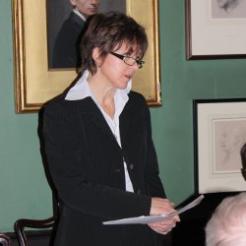Dame Suzi Leather has urged charities not to run marketing campaigns that focus on minimal overheads and says it is charities’ collective responsibility to educate donors on the necessity of running costs.
Speaking to an audience of UK charity leaders at a breakfast briefing held by Russam GMS last week, the Charity Commission chair said many donors don’t understand the true investment needs of charities, such as the need for back-office as well as front-line investment, and that it was the sector’s role to “put them straight”.
Marketing messages that “trumpet low or minimal overheads” can be “counter-productive”, she said. While donors often demand quick wins and an immediate return on investment, ‘slow charity’, or long-term investment, should be promoted, she said.
Ian Joseph, managing director of charities and not-for-profit at Russam GMS, said the concept of ‘slow charity’ represents a "paradigm shift in the way most donors think about investment".
Speaking to civilsociety.co.uk he added that charitable foundations and other funders are often keen to see impact at an early stage, but advised that impact measurement should be implemented at both short and long-term.
“Funders should ask the question 'where do we want to be in ten years time?',” he said, adding that longer-term investments may need greater infrastructure, such as IT systems, to implement an effective long-term strategy. “It’s quite difficult to get people to invest in such things,” he said. “The question is, how do you change people’s views on giving?”
Dame Suzi pointed to the Commission’s latest investment guidance, published in October 2011, which outlines good practice for investment by charities, asserting that it is acceptable for charities to invest their assets both to achieve objectives and to gain financial return. She also highlighted the benefits of charity-to-charity social investment and a need for charities to work closer with the corporate sector for both investment and goods-in-kind.
Last year Oxfam ran two marketing campaigns that highlighted the fact that its administrative costs were covered by PayPal. The '100 per cent giving' campaigns ran in both February and September, effectively as a match-funding scheme where 19p on each £1 of individuals' donations - the amount Oxfam determines is spent on running costs - was paid by PayPal. The campaigns aimed to assure donors that every penny of their donations would go straight to 'the cause'.









